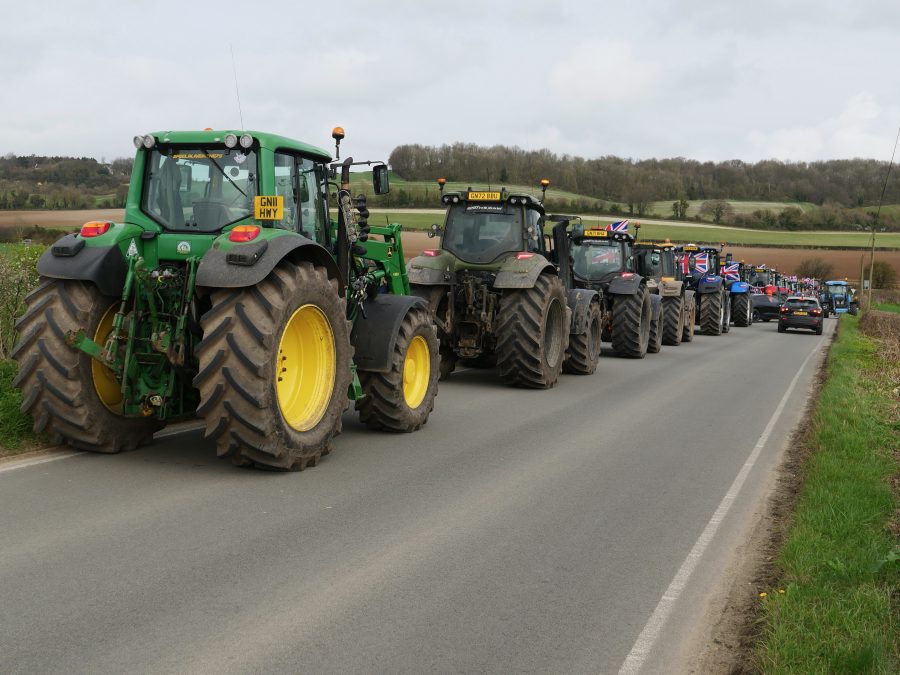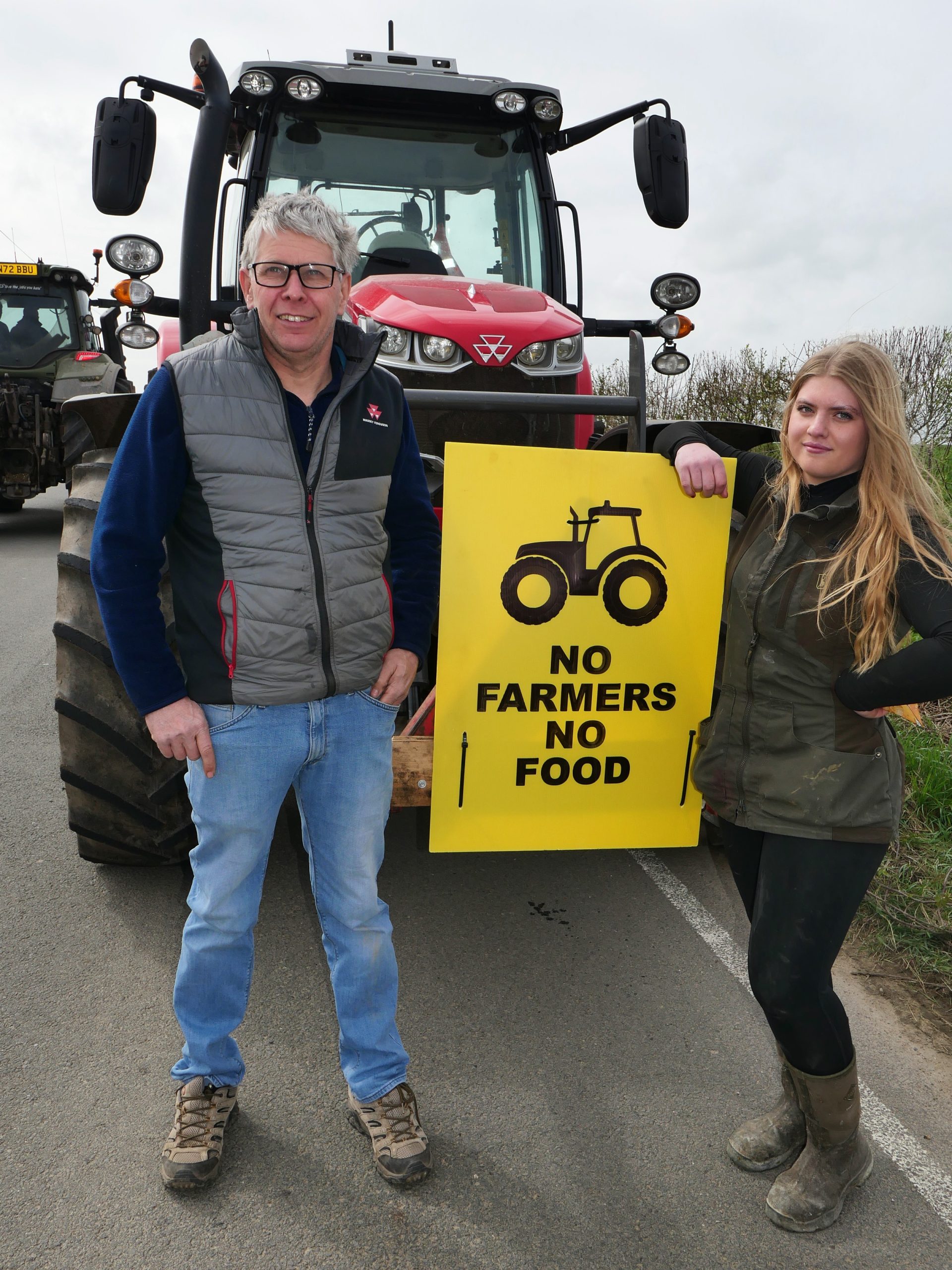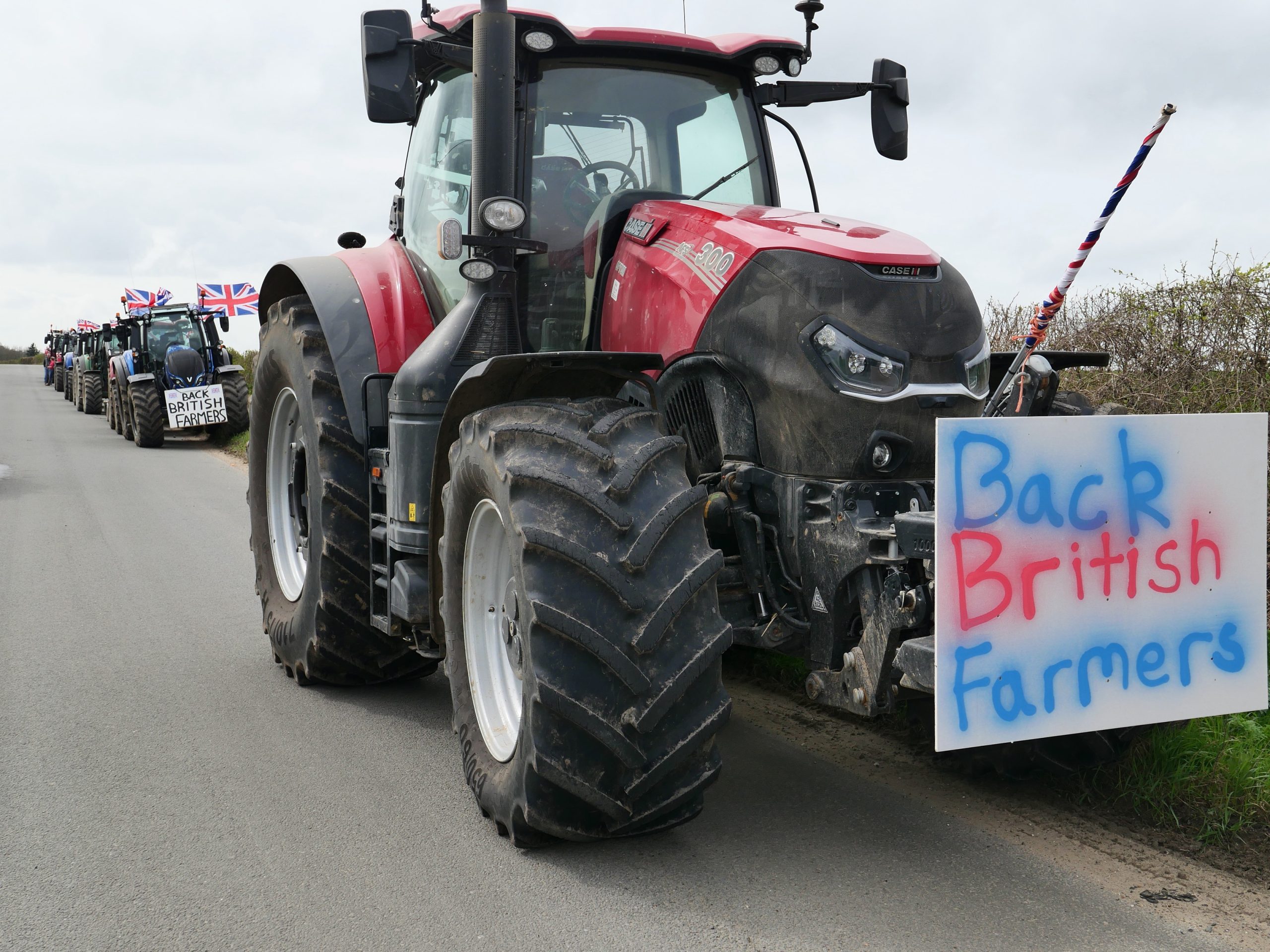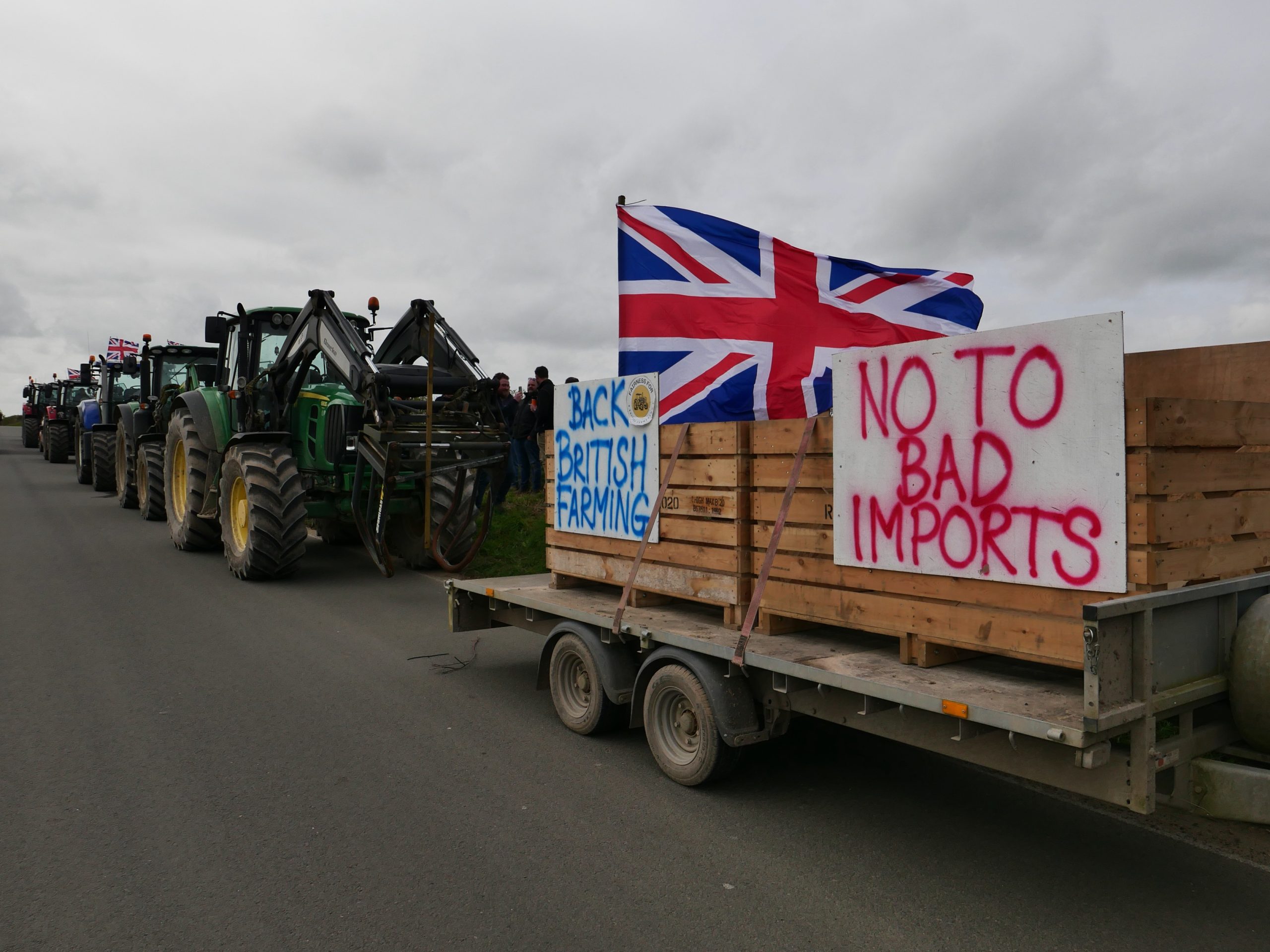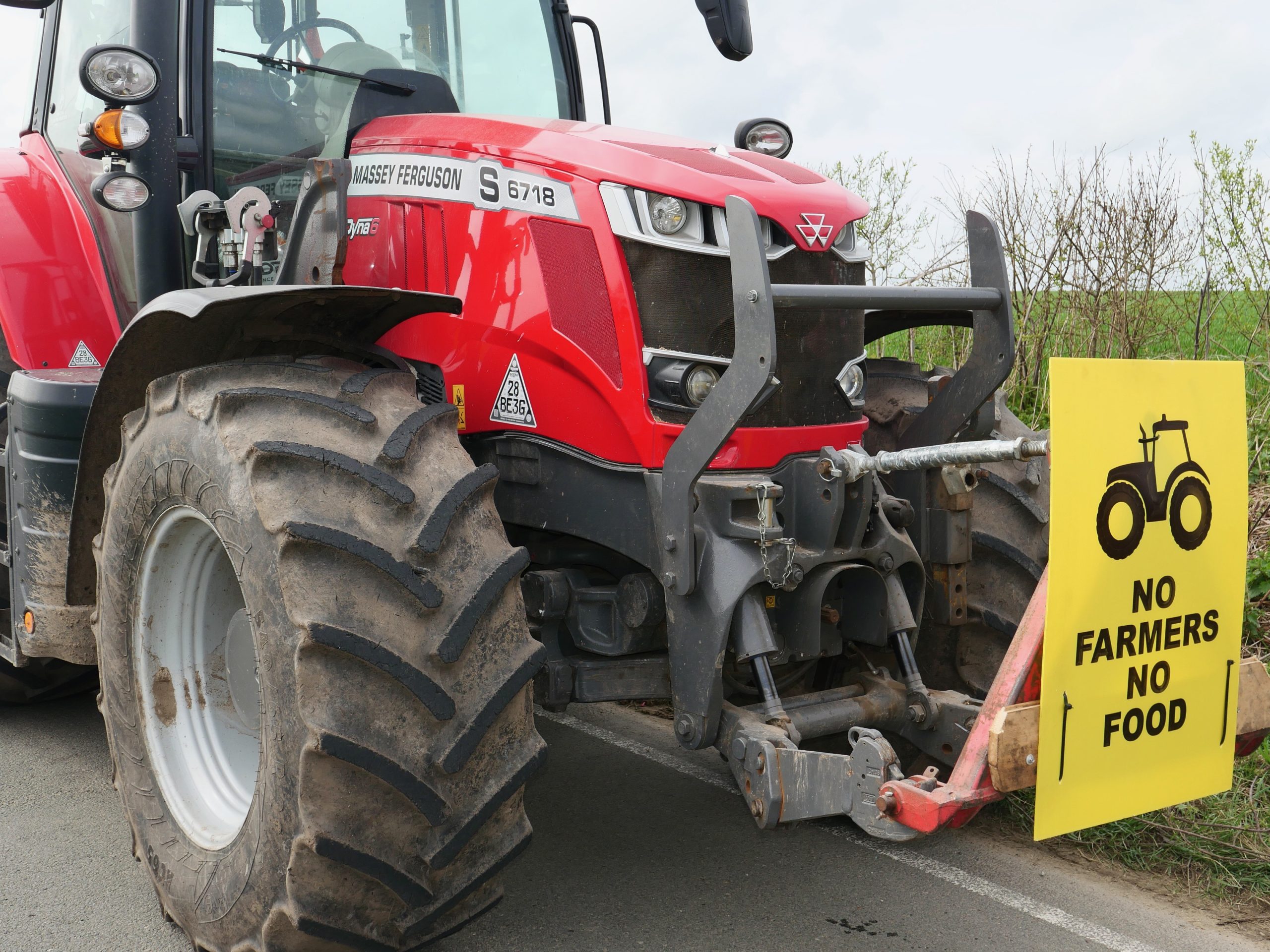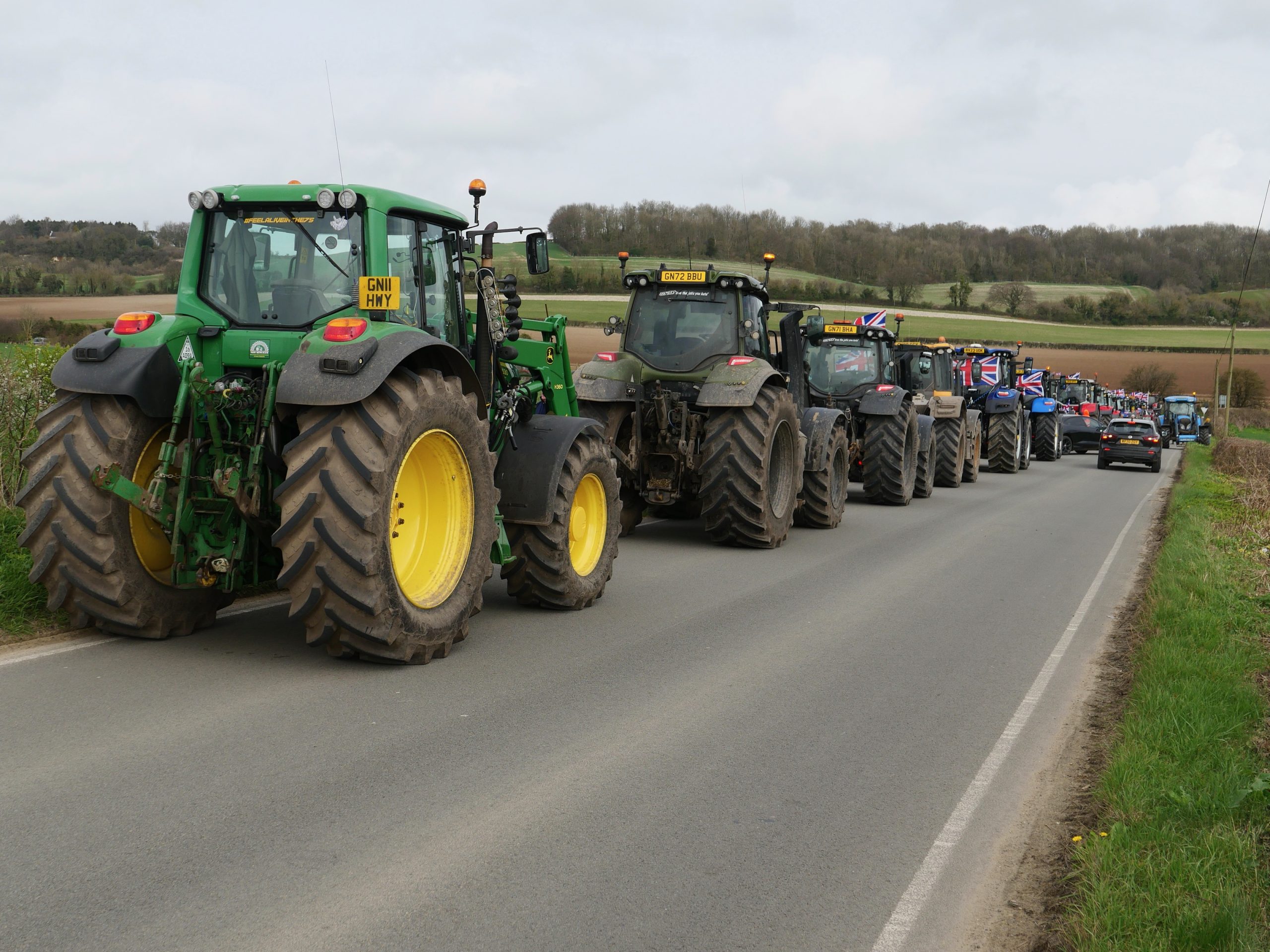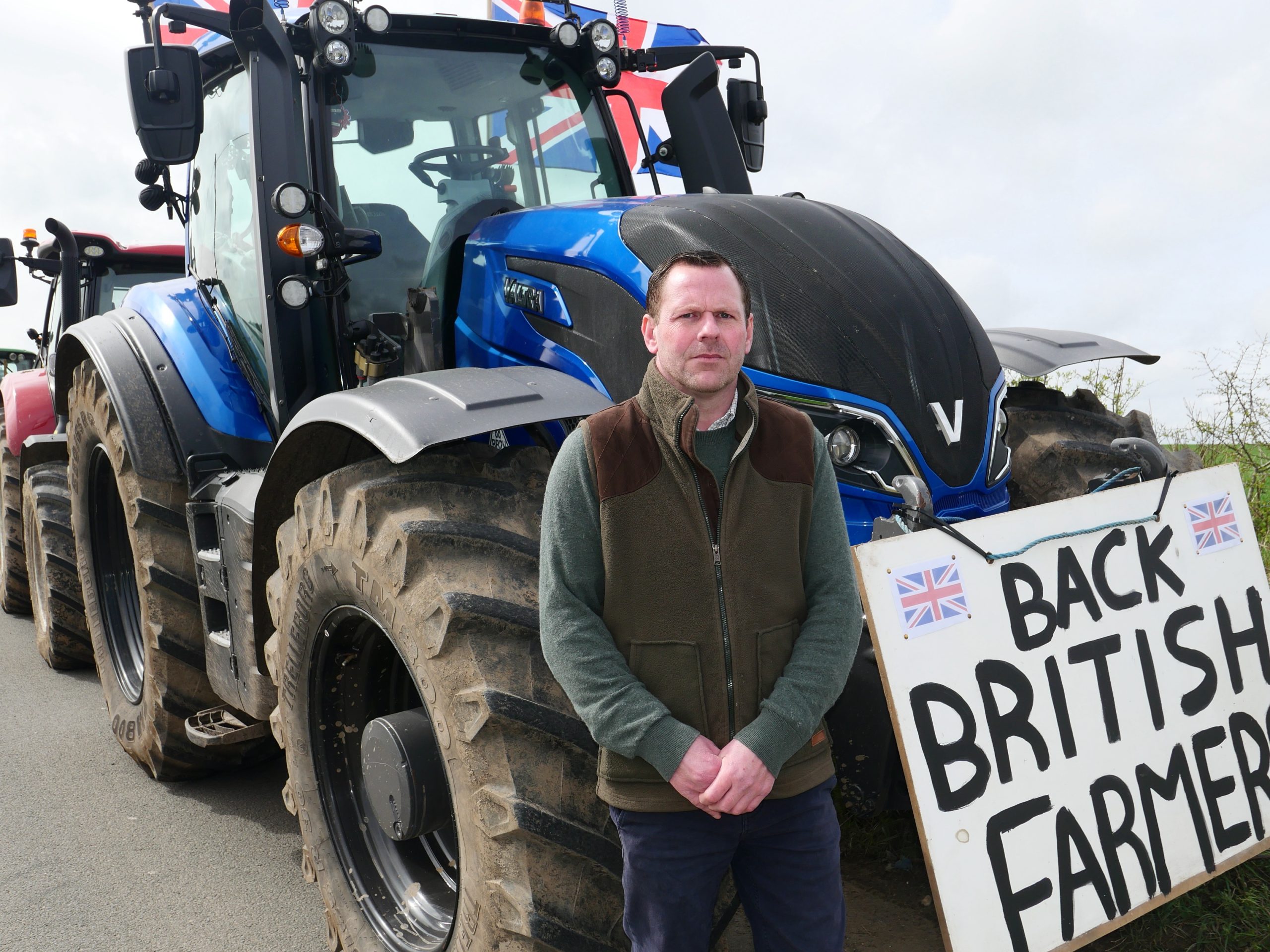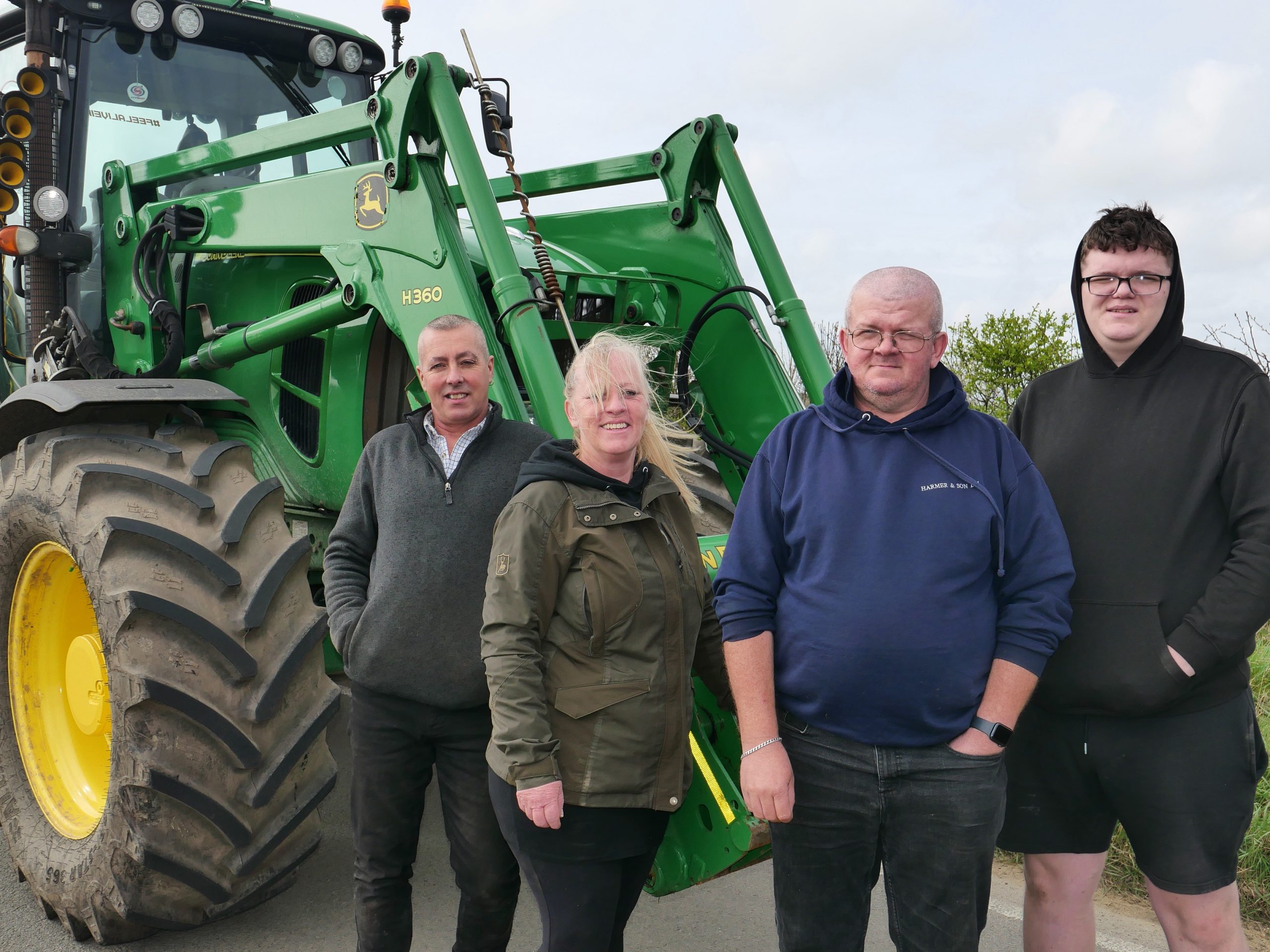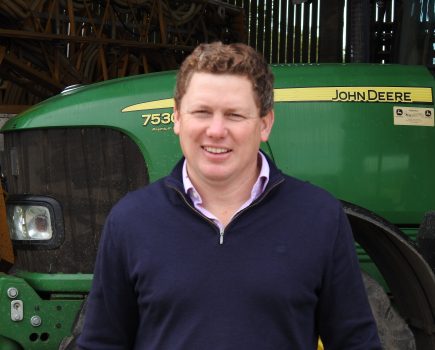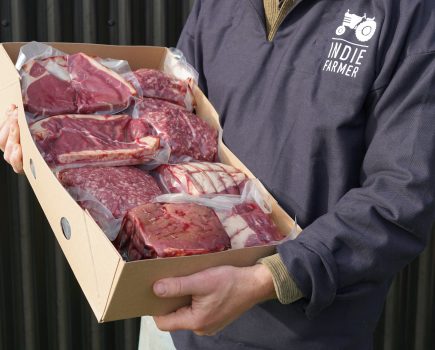More than 100 farmers made the slow journey by tractor from Kent to London to continue the campaign against below-par food imports.
They were joined by fellow campaigners from Hampshire and Reading, while others flew in from Ireland or arrived by train from across the UK.
Organiser Matt Cullen, a beef farmer and contractor from Staple, Near Canterbury, was delighted with the response. He led the first Kent group, which set off from Charing before picking up another cohort at Wrotham and another at Swanley on the way to New Covent Garden.
“It’s very impressive. We expect to have well over 100 tractors and other vehicles in the convoy by the time we reach the capital,” he said.
The London rally at the end of March followed protests in Dover, Ashford and Canterbury which gave Kent’s farmers the chance to explain the challenges facing farmers to members of the public, most of whom backed the campaigners.
The campaigners have three aims, which Matt said were “to ban substandard imports, make labelling honest and promote the need for food security”.
From New Covent Garden, the go-slow convoy was given a police escort to Parliament Square, where farmers were able to make their points to the politicians they hope will legislate to make life fairer for the UK’s farmers.
The protest also won the support of Riverford’s ‘Get Fair About Farming’ campaign, which saw its petition to the UK government debated in Parliament in January.
“The request made by Kent Fairness to Farmers for the Government to block substandard imports is a further example of unfairness within the farming supply chain,” the organisation led by Guy Singh-Watson, founder of organic veg box company Riverford, commented.
“Allowing lower quality imports not only undermines UK production standards but also devalues the efforts and quality of domestic farming. If British farmers are expected to meet high standards, it is contradictory to then permit the sale of inferior imports.
“We know that agriculture can negatively impact the environment, and adopting nature-friendly farming methods is essential, but farmers cannot do this if they are being undermined by cheap imports and unfair prices from retailers.”
- David Shannon and Christy Clark
- Matt Cullen
- Paeter Hawkes, Kerry Goddard, Phil and Josh Ward

